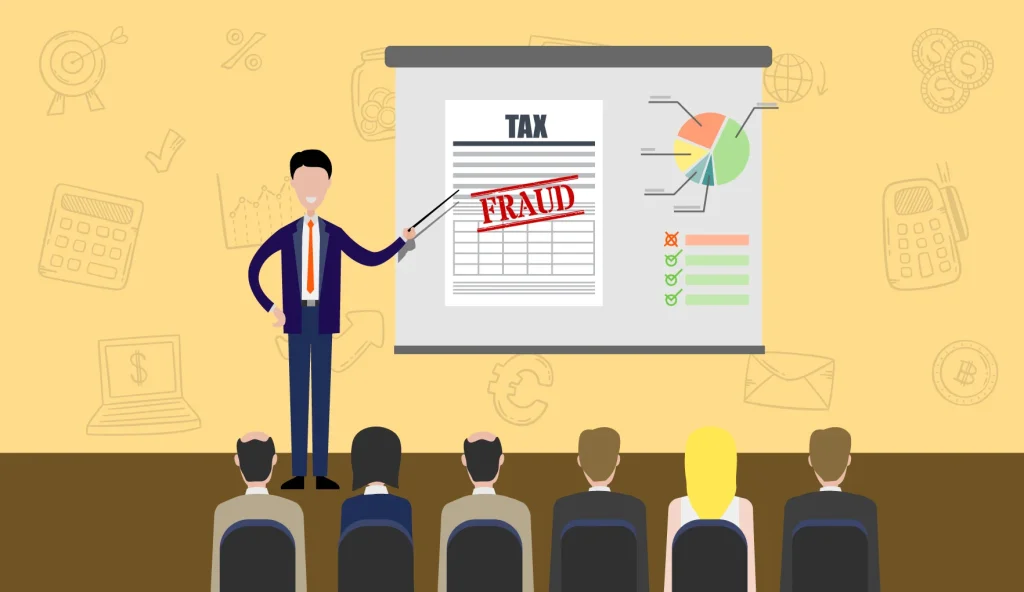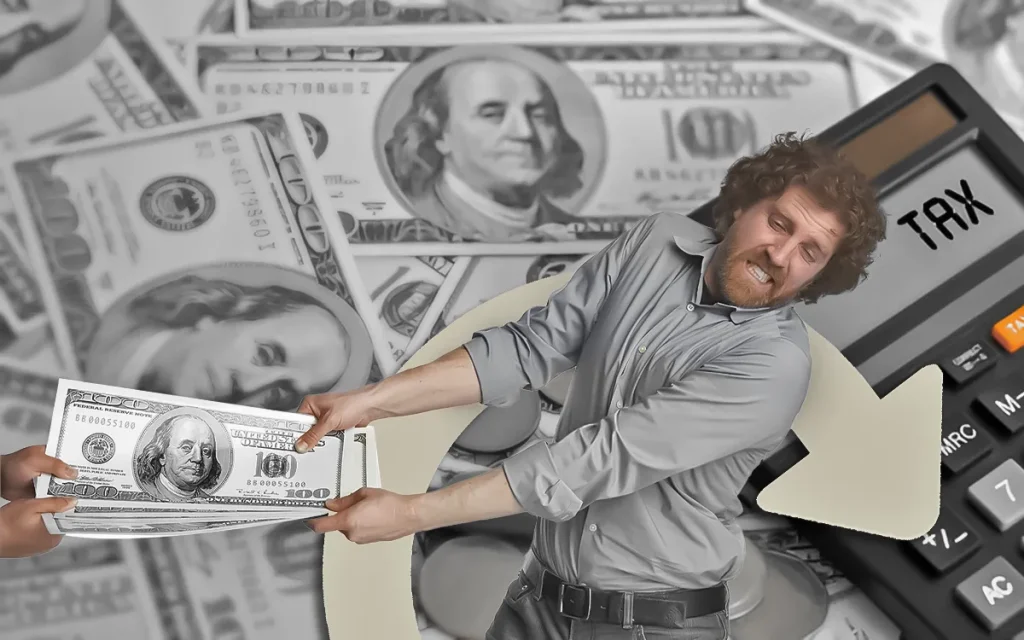We are always taxed on goods and services that we purchase, and we also pay other taxes to the government when we make money. As responsible citizens, it is our duty to do so. However, many of us do not know the kinds of taxes that are levied on us, which online scammers love to exploit.
There are more scammers online than genuine businesses. The Internet offers several business opportunities, but many of them are scams. Scammers frequently steal money from their victims through fraudulent activities, including levying illegal taxes. Impersonating an online broker and providing fake services like stock trading, commodity trading, forex trading, binary options, crypto trading, and Bitcoin trading, these fraudsters levy bogus brokerage taxes and account withdrawal taxes.
How Do Online Scammers Scam Their Victims with Fake Taxes?
Governments offer citizens the opportunity to make money by investing in the capital market, and they regulate these markets to safeguard investors. However, with the increasing popularity of Bitcoin and cryptos, scammers also rip off their victims through various bogus and hidden charges. Unfortunately, the crypto market is less regulated, making it easier for scammers to operate.
Due to limited resources, it is impossible to regulate every broker or brokerage firm. Scammers exploit this by indulging in investment tax scams and financial asset withdrawal taxes. Many are not aware of different types of taxes, and scammers conceal their bogus charges under hidden tax frauds.
Common Tax Scams in Online Trading
- Profit Gain Tax Scam: Scammers tell victims they owe a tax on their investment profits. They often provide fake documents and official-looking emails to convince victims of the tax’s legitimacy.
Example: Sarah invested in a fake cryptocurrency platform. After a few months, she received a notice stating she owed a profit gain tax on her earnings. The notice looked official, so she paid the tax, only to find out later that the platform was a scam. - Brokerage Fee Scam: Fake brokers charge exorbitant fees under the guise of standard brokerage fees. These can include account setup fees, maintenance fees, and more.
Example: John started trading on a new platform that seemed reputable. After his initial deposit, he was hit with numerous fees for services he never received, significantly reducing his investment. - Withdrawal Tax Scam: When investors try to withdraw their funds, scammers impose a “withdrawal tax” that must be paid before the funds are released. This tax is bogus, and paying it does not result in a successful withdrawal.
Example: Mike decided to withdraw his earnings from an online trading platform. He was informed that he had to pay a withdrawal tax upfront. Despite paying the tax, he never received his money.
What Are the Different Online Tax Scams on a Fake Trading Platform?
Con artists will charge various brokerage account taxes, such as stock taxes and stock withdrawal taxes, commodity taxes and commodity withdrawal taxes, and forex taxes and forex withdrawal taxes, while offering bogus trading services. They also charge Bitcoin taxes and Bitcoin withdrawal taxes, as well as crypto taxes and crypto withdrawal taxes, while offering fake crypto trading services.
Real-Life Example
The Case of Binary Options Fraud: Binary options trading platforms have been notorious for scamming investors. These platforms offer high returns on investments in short time frames, but when investors try to withdraw their money, they face endless “taxes” and “fees” that must be paid first. Many people have lost their entire life savings to such scams.
What Happens When a Victim Falls for Tax Fraud Scams?
Scammers offer fake trading platform services to access the capital financial and crypto markets, ensuring they steal every possible penny from their victims. Once a victim falls for an investment scam, scammers provide a fake performance report of the underlying assets. Victims are encouraged to invest more after their initial small investment.
When victims want to withdraw money, scammers charge account withdrawal taxes and other hidden fees. Victims initially pay these amounts, thinking they are legitimate taxes. However, after paying, they cannot withdraw their money and are made to call different departments, incurring more charges. Eventually, victims realize they have been scammed.
The Vicious Cycle
- Initial Investment: The scam begins with a small, seemingly legitimate investment.
- Fake Profits: The scammer provides reports showing significant profits to encourage further investment.
- Withdrawal Request: When the victim tries to withdraw funds, they are hit with unexpected taxes and fees.
- Endless Payments: Victims continue to pay fees in hopes of recovering their money, but the withdrawals never happen.
How to Avoid Tax Fraud and Other Account Withdrawal Taxes?
To avoid falling for hidden charges or bogus taxes, always research before subscribing to any investment opportunity. Go through all terms and conditions and company policies. If you find it challenging to understand these documents, approach a certified public accountant (CPA).
Prevention Tips
- Verify Credentials: Check the credentials of any broker or investment platform. Look for regulatory approvals and read reviews from other investors.
- Be Skeptical of High Returns: Be wary of investment opportunities that promise high returns with little risk. If it sounds too good to be true, it probably is.
- Consult Professionals: If you are unsure about an investment, consult with a financial advisor or CPA.
- Secure Communications: Avoid sharing personal information over unsecured channels. Use secure, verified platforms for all communications.
- Watch for Red Flags: High-pressure sales tactics, lack of transparency, and requests for upfront payments are all red flags.
Final Thoughts on Avoiding Tax Fraud in Online Trading
Many investment opportunities that offer unrealistic returns are likely Ponzi or pyramid schemes. Research and compare what is being offered to you, and ensure you are subscribing to a reputable and trusted broker or brokerage firm.
By taking these precautions, you can protect yourself from tax fraud and other online scams in the world of trading.
How do scammers execute tax fraud?
Scammers execute tax fraud by creating fake trading platforms, charging bogus fees, and using official-looking documents to convince investors of the legitimacy of these charges.
What are common types of tax fraud scams?
Common types include profit gain tax scams, brokerage fee scams, and withdrawal tax scams, where victims are charged fake taxes on their investments.
How can I avoid falling victim to tax fraud?
To avoid tax fraud, always research investment opportunities, verify the credentials of brokers, be skeptical of high returns, consult financial professionals, and watch for red flags.
What should I do if I suspect tax fraud?
If you suspect tax fraud, secure your accounts, report the incident to your broker or platform, document all communications, and seek professional assistance immediately.


